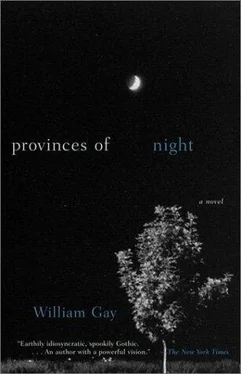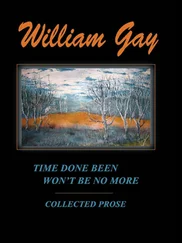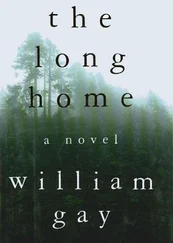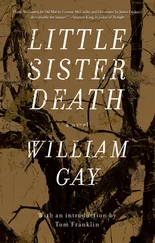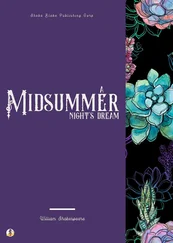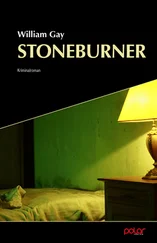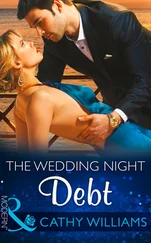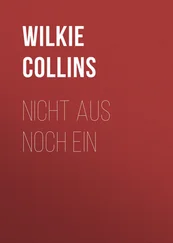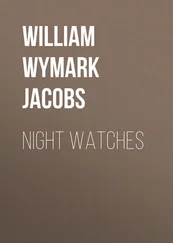To Fleming’s bemusement Bloodworth and Sharp and the other old men remembered all this with something like nostalgia, as if this violent history was something you’d save bloody mementos from and place between the pages of a Bible like faded flowers. The old man himself, Sharp said, able and better to hold his own. When he was in his prime, Sharp said, the old man used to sweep the place out on Saturday nights like a longhandled broom.
You ever tell your runnin mates there about that shootout you had with the deputies?
The old man gave Sharp an almost imperceptible shake of the head. Sharp hushed. Bloodworth sat watching bubbles rise in the glass of beer on the table before him. Some things is better in the ground with the dirt throwed over them, he said.
Like deputies that use your wife for a shield and cut down on you with a.44 Special, Sharp grinned.
The old Dodge had idiosyncrasies peculiar to it and was subject to innumerable malfunctions and you might see it halted on the shoulder of the road with the hood raised, Albright blowing trash out of a fuel line or cleaning the points with a piece of sandpaper, Fleming looking on and the old man ensconced in the back seat, fanning himself and waiting with the ingrained patience of the old.
They might have been on their way back to Itchy Mama’s, and they might make it yet, where some nights they had vicious cutthroat games of Rook where millions of conjectural dollars rode on the fall of a single card, Itchy Mama and the old man teamed against Fleming and Albright, Itchy Mama watching Albright’s dealing with a hawklike intensity and describing the serious bodily damage that would ensure if she caught him palming the Rook or red one.
In these early days with the old man it seemed to Fleming that he was already changing, though he had never known his grandfather before and could not have said what he was changing from: from the protagonist of other men’s stories, perhaps, for he no longer looked like a man given to gunfights with deputies, this benign old man watching whatever moved with his wry ironic eyes did not seem the type to clean out Saturday night honkytonks, to be waylaid on Indian Creek by men who rose out of the sage like sepia men of another century who sighted down the barrels of their rifles and blew him off the wagonseat into the bloody weeds.
Even when he’d arrived he’d had restless eyes, eyes that were always looking about as if he might notice some place he’d rather be and head out for it immediately. Fleming had heard him tell Albright once that he had come back to make peace with his family. But as far as Fleming knew he had made peace with nobody. After a while it occurred to him that without even knowing it the old man was making peace with himself, and that that had probably been a good part of the trouble all along.

THE OLD MAN rolled six lemons on the countertop until they were soft and full of juice. The hot air in the tiny trailer took on their astringent, citrusy smell. He cut the ends off them one by one and one by one squeezed them into a widemouth glass jug and sliced them into chunks with his pocketknife and dropped them in as well. He poured in sugar gauging the amount with an eye instead of a measuring cup and added water from the tap.
Chunk us off some of that ice, he said.
The refrigerator had refused to freeze more ice and Albright had brought out a fifty-pound block the day before from the ice plant. What remained the old man had wrapped in a quilt and stored beneath the sink. Fleming unwrapped it and with a clawhammer knocked off several fistsize chunks. He handed them to the old man. Bloodworth folded one of them into a clean towel and pounded it with the clawhammer and dumped the shaved ice into a snuffglass. He took down from a doorless cabinet a bottle of Early Times and poured an inch or two over the ice.
He held the tumbler to the sunwashed window and then held it to his face and breathed in deeply. Early Times, he said. I always liked the name better than the whiskey. Early Times are the best times there is.
I believe we’ll drink these in the sitting room, he said, filling a glass with lemonade and reaching it to the boy. I believe I can smell my hair starting to singe.
He had supervised construction of this sitting room himself. What it consisted of was a clearing perhaps twenty feet by twenty feet hacked out of the undergrowth behind the trailer. Junior Albright and Fleming with briarblades and brushhooks and axes had cleared the smaller saplings and honeysuckle vines and brush then raked the earth clean as if swept with a broom. Above them a tangle of summer leaves and grape and muscadine vines interlaced so tightly they formed a virtual ceiling, so that the sitting room was always in shade save the early morning hours and just before dusk. The old man had bought three lawn chairs and he and Fleming and Albright would sit about the glade at their leisure as if they were quality folk taking the air from the balcony of a columned mansion.
This place is all right with me, Bloodworth said. I could live in a brush arbor. I could live in a groundhog den.
The old man did not actually drink the whiskey anymore. He had a bad stomach and a bad liver even aside from the stroke and he’d sit hour-long with a glass of bourbon in his hand as if he were absorbing it into his blood by osmosis. He’d occasionally take a birdlike sip or wet his lips with it, sometimes he’d raise the glass and just smell, taking in the odor of icy whiskey and mint like a connoisseur of fine wine inhaling the bouquet from a crystal goblet.
I’ve drunk good whiskey and I’ve drunk bad, the old man told Fleming. I’ve drunk whiskey so good you could smell the leaves in the woods where it was made and I’ve drunk it so bad you could strip the paint off a barn door with it. I’m inclined to believe it was the paintstrippin kind that left my stomach in the shape it’s in.
The boy tilted back in the lawnchair and drank down half the glass of lemonade. It was so cold it made his throat ache, strong with the sour taste of lemons, sweet with the sugar the old man had dumped in. The old man always used too much of everything, too many lemons, too much sugar, as if halfmeasures at anything were beneath him. He tipped too high in restaurants, exhorted Albright to drive faster, was wide awake and ready to roll in the small hours of the morning when Fleming and Albright folded on him.
Fleming was finding E. F. Bloodworth strange past any expectation of him. Much accustomed to only the company of himself the old man might complacently sit half a day without saying a word. Or he might, under the boy’s gentle prodding, begin to talk, telling little by little sections of his life. At some point it began to seem like a story telling itself, and finally a narrative the old man was telling for his own benefit. As if he’d make some order out of these chunks of personal history, some sense. Like shifting about the pieces of a puzzle on a table until the edges dovetail.
Studying him where he sat Fleming tried to match the old man to the photograph he’d found in his grandmother’s picture box. No pictures of him hung on the walls of the house. Fleming had seen family portraits with the old man neatly scissored out and only the blank man-shaped space he’d occupied remaining, as if the old man had been there a moment ago and you’d looked away then back and he’d vanished. Vanished so thoroughly all you could see of him was the newsprint or fabric you were holding the picture against. The air itself. Now you see me, now you don’t, the old man seemed to say. Wink and I’m gone, cross me or badger me and I’m down the line.
This photograph had somehow escaped, and Fleming suspected the old woman had hidden it away. It was perhaps four inches by six, darkened to varying stages of sepia, from the palest beige to a brown almost darkened to umber. It had a thick crumbly texture as if it had been fired in a kiln. A man stood before a board wall. Rough sawmill planks, you could see the circular marks where the saw had gone, the nailheads where they’d been hammered together. The man wore what looked like part of a dark serge suit, pants that looked oversized suspendered over a collarless white shirt. The man wore a dark fedora and beneath its brim the fierce empty eyes looked out as if they were coming from a thousand miles away, and were off immediately another thousand in some other direction. The eyes were just dark holes, he’d thought as a child if you canted the photograph to the light he could have seen through them like pinpricks charred through the cardboard.
Читать дальше
